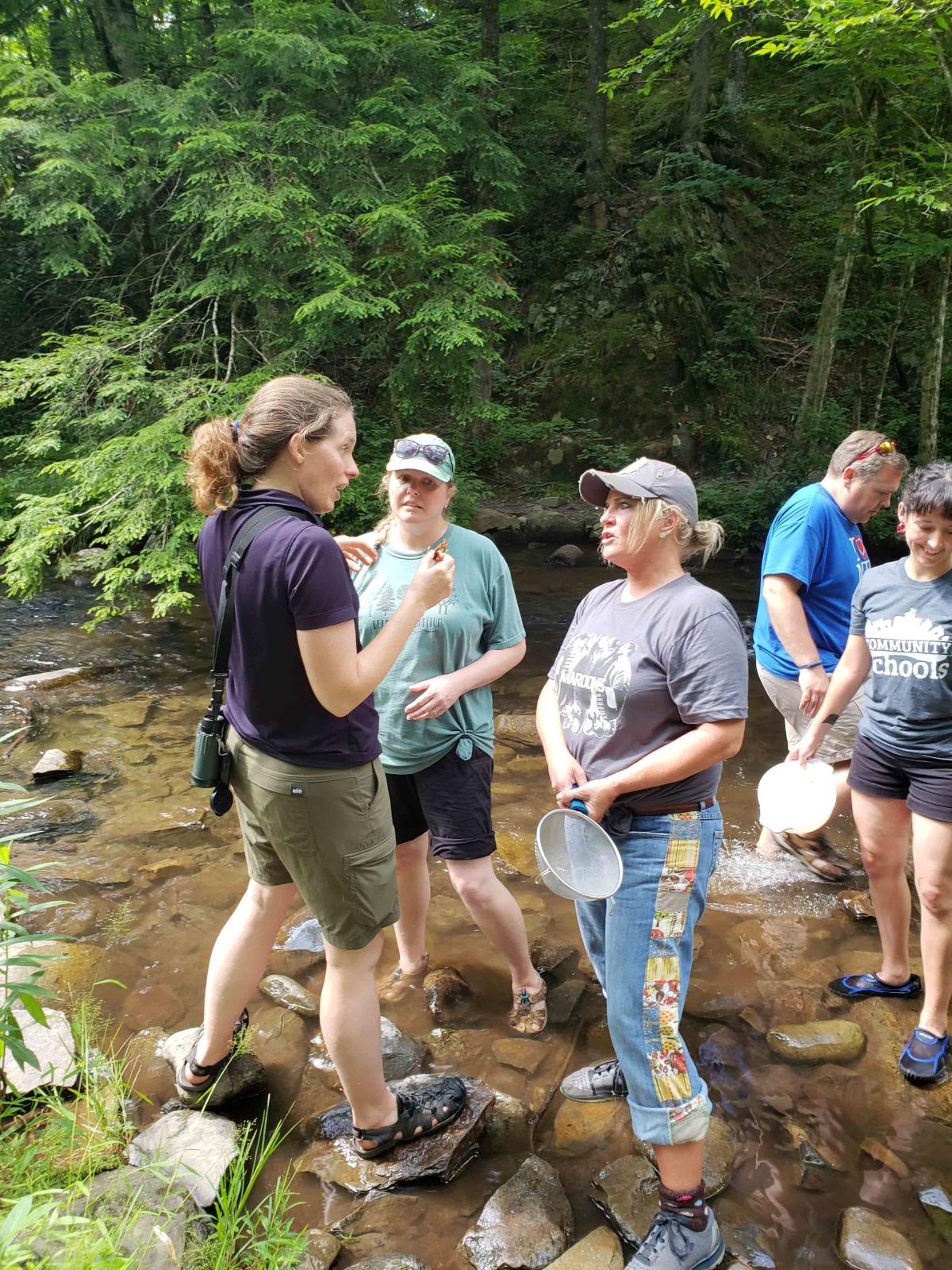Curriculum, instruction and special education associate professor encourages teachers, students to become citizen scientists

For the past several years Dr. Ryan Walker, an associate professor in the Department of Curriculum, Instruction and Special Education, has worked with the Great Smoky Mountains Institute at Tremont helping train teachers how to encourage their students to become citizen scientists.
“We have always relied on students. Citizen science has been a movement of the past 10 years or so, and in my work with the National Science Foundation, we’ve seen a huge increase recently,” Walker said.
The Institute at Tremont has a campus within the Great Smoky Mountains National Park. There they offer extended field trips for mostly fifth through eighth graders, but also do high school and college groups extended stays. While these groups are in the park, they participate in citizen science projects, where they collect scientific data from around the national park. Walker got to know the people at the institute through his dissertation research on what the impact was of citizen science projects and how the schools incorporated this experience into their science curriculum. He realized that if they wanted to increase teachers’ impact on these students and their projects that the teachers needed to go through some type of training to make these experiences more impactful.
This led to the institute seek funding for an immersive one-year workshop with teachers from the school districts that board the Smoky Mountains National Park in addition to only accepting teachers from boarding school districts. All in all five projects like the one at the institute were funded around the U.S., but the one at the Institute at Tremont put teachers in the middle of developing the science project. During the year-long workshop, Walker and the institute staff helped teachers develop their own citizen science projects that used their students to collect the data.
These projects all had to be related to water as well as bordering the national park. Walker ended up selecting six schools that had access to water on their campuses. Teachers were able to develop their own research project and have their students work on them as long as they all used a nationally recognized database so scientists could use their data.
“We advise them on the protocols, like if you’re collecting water samples, what is the process for collecting a water sample that would make accurate data? Essentially, what we can do is as long as you have an established protocol that they agree to, you’re erasing any error because of the sheer volume of information that these students collect.” Walker explained.
During the workshop, one of the first things Walker wants to model is to get the teachers asking questions to their students. He explained that this usually works when students have a question the teachers, in turn, ask the students how would they go about finding the answer and guiding them through the process of how they would learn the answer to that question. Walker goes on the explain that the goal of this is for the teacher not just to be a dispenser of information, but to show students the process of learning. Once the workshops concluded Walker found the teachers had grown in confidence especially in their planning of science curriculum.
“We are looking into student impact, but right now we are just blown away with teacher impact and how it has influenced them. We’re hoping to see how that translates into the classroom.”
For more information about the Great Smoky Mountains Institute at Tremont visit www.gsmit.org.